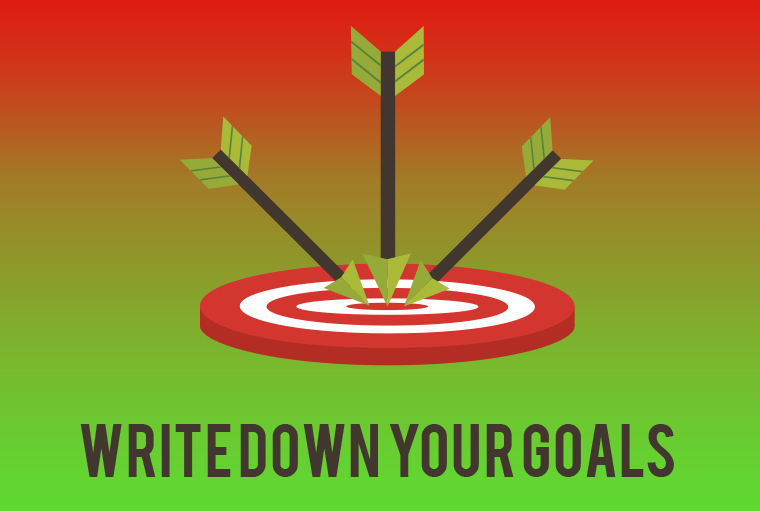I earned my MBA some years ago, but I’ve often felt it wasn’t the best use of my time or money. Especially since much of what I’ve become exceptional at, had nothing to do with the classes I took in business school. Mark McCormack in his book What They Don’t Teach You in the Harvard Business School, echoes some of my own thoughts, but points out something incredibly interesting from a study of the graduates from there. According to McCormack, Harvard discovered that 3% of graduates are more successful than the remaining 97% combined. WHy was that? Well, you may be ahead of me, but here’s the answer.
In 1979, interviewers asked new MBA grads “Have you set clear, written goals for your future and made plans to accomplish them?”. This is what they found:
- 84% didn’t have specific goals at all
- 13% did have goals but had not written them down
- 3% did have clear, written goals and plans to accomplish them
In 1989, they re-interviewed the grads and found these interesting results:
- The 13% of the class who had goals were earning, on average, twice as much as the 84 percent who had no goals at all.
- The 3% who had clear, written goals were earning, on average, ten times as much as the other 97 percent put together.
Similar studies in academia have discovered similar results. For example, Dr. Gail Matthews, a psychology professor at Dominican University in California, found that 42% of her study participants were more likely to achieve their goals just by writing them down on paper. Of course, the actual percentage of people in life who will sit down and write out their goals list is fairly tiny when compared to those who will drift through life like a boat without a rudder.
I made my first goal list in 1990, with an aggressive follow up in 1993. I had 242 things on that list, and I’ve done every one of them. For instance, my initial list included the following:
- Write a book (accomplished in 2003)
- Become a Defensive Tactics Instructor (accomplished in 1993)
- Travel to Japan (accomplished in 1991)
- Buy my first new car (accomplished in 1991)
- Attend the police academy (accomplished in 1993)
- Start a family (accomplished in 1994)
- Learn to fly (accomplished in 1995)
And so on. I didn’t check them all off at once mind you, but I did check them off. Of course, that list changed as things were knocked out or removed in favor of something else, and new things were added as I developed new interests. I’ve re-written my list every single year now for more than twenty years—and I continue to check things of, even as recently as today.
It’s important to point out that your list will reflect what’s important or valuable to you at that moment, and that will change as you accomplish more, do more, and become more than you were. Your values, interests, and ideals will change. But if you never develop a clear list in the first place, you’re never going to enjoy those accomplishments that will help you become the person you can become. Here’s why:
1. Writing your goals down will force you to be more specific
As someone who’s dabbled in flying aircraft around, I know from experience that having a plan is way better than not. If I want to fly to SFO from LAX, I have to pass through different controlled airspace, I need to know how much fuel, what the weather conditions are like, and a plethora of other important things. If I just got in a plane and took off without a plan, I could find myself in a heap of trouble quick like. In other words, you need a destination in mind—and that’s what a goal is. Writing them down forces you to be specific.
2. Writing your goals down will help keep you motivated
Contrary to what some people believe, being motivated isn’t enough to accomplish your goals—but it is a start. An important one. If you lose motivation, you’re simply not going to continue forward. The list helps in this respect; it allows you to visualize and as you check things off (I break my list down into easier to manage tasks) you get to see thing happening. The list reminds me and helps keep me focused. But ultimately, without action—you’ll get nowhere. Imagine if you made a flight plan, but never actually got into a plane and took off. Make sense?
3. Writing your goals down will help you overcome resistance
Anyone who’s ever had goals understands that at some point, someone, is going to say you can’t do it. Maybe even your own inner voice. Every goal encounters opposition—it’s just the nature of things. From the moment you declare you’re going to do something, you can bet someone is going to declare you’re crazy, stupid, a moron, that you can’t, can’t can’t. Ignore them. Reviewing your list daily once when you get up in the morning and just before you go to bed helps stave off the feelings you’ll experience that maybe they’re right—and you’re wrong. Reviewing your list helps keep you focused and charging forward. It keeps the goal fresh on your mind, and that’s critical to success.
4. Writing your goals down will reveal other opportunities
Like I said, my first list had 242 things on it. At the time, all of them made sense for who I was back then, and what I wanted to do in my life. As I did more and more, as I checked them off, those experiences opened up doors for all kinds of other things. Doing the things on your goals list will help you meet new people, go new places, experience new cultures—and all of those things introduce you to other things you may want to do. New goals come from accomplishing those first goals.
5. Writing your goals down will help you overcome resistance
Coming back a bit to being motivated, the list will allow you to track your progress. As I touched on, you get to see things get checked off. You get to experience and celebrate the accomplishment of these goals—and that helps keep you on track. It’s like when you run a race, each mile marker helps you see your progress and understand how much more you have to do to finish.
Suggested books:
- Do the Work (on overcoming resistance)
- What They Don’t Teach You in the Harvard Business School






